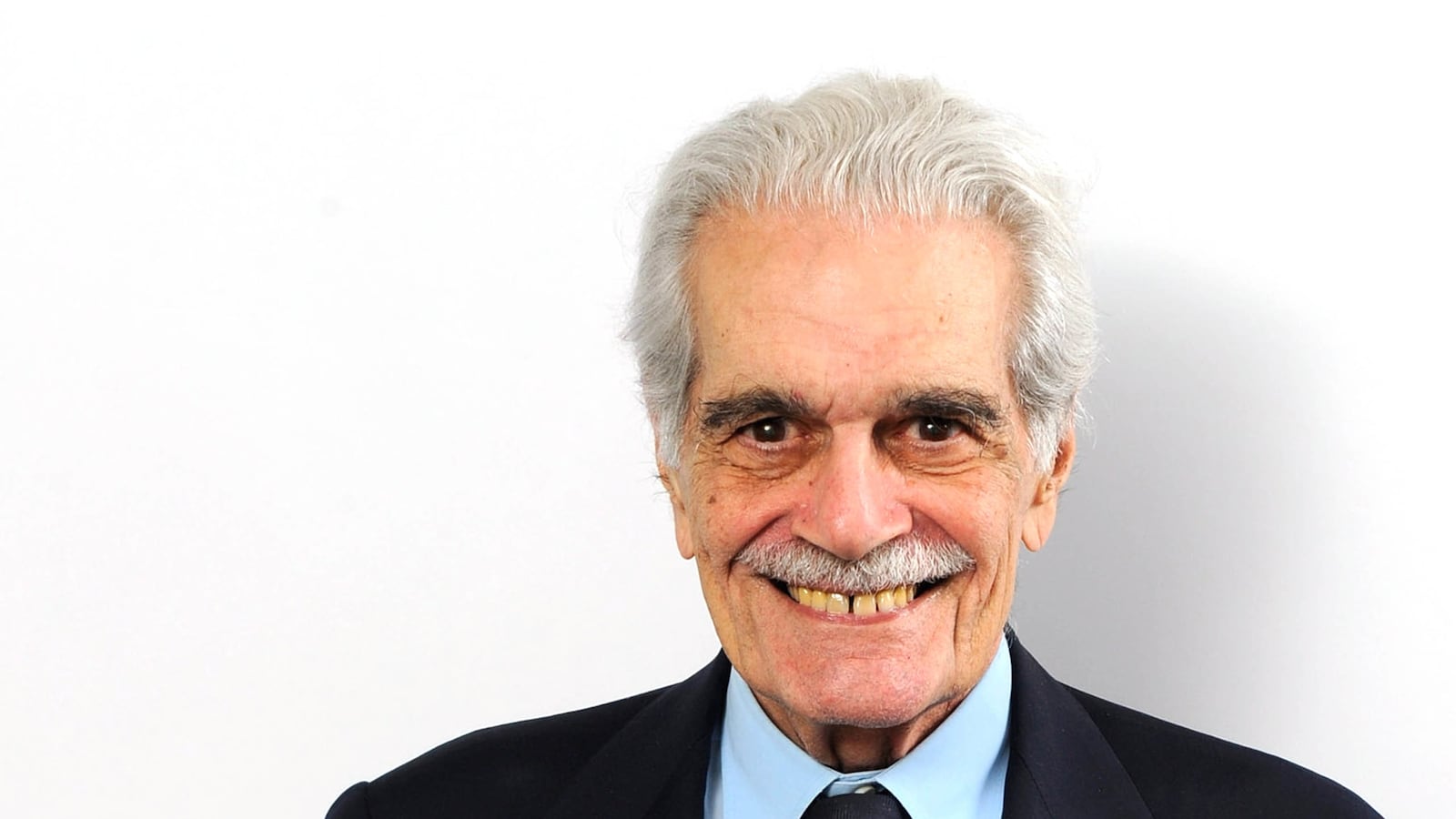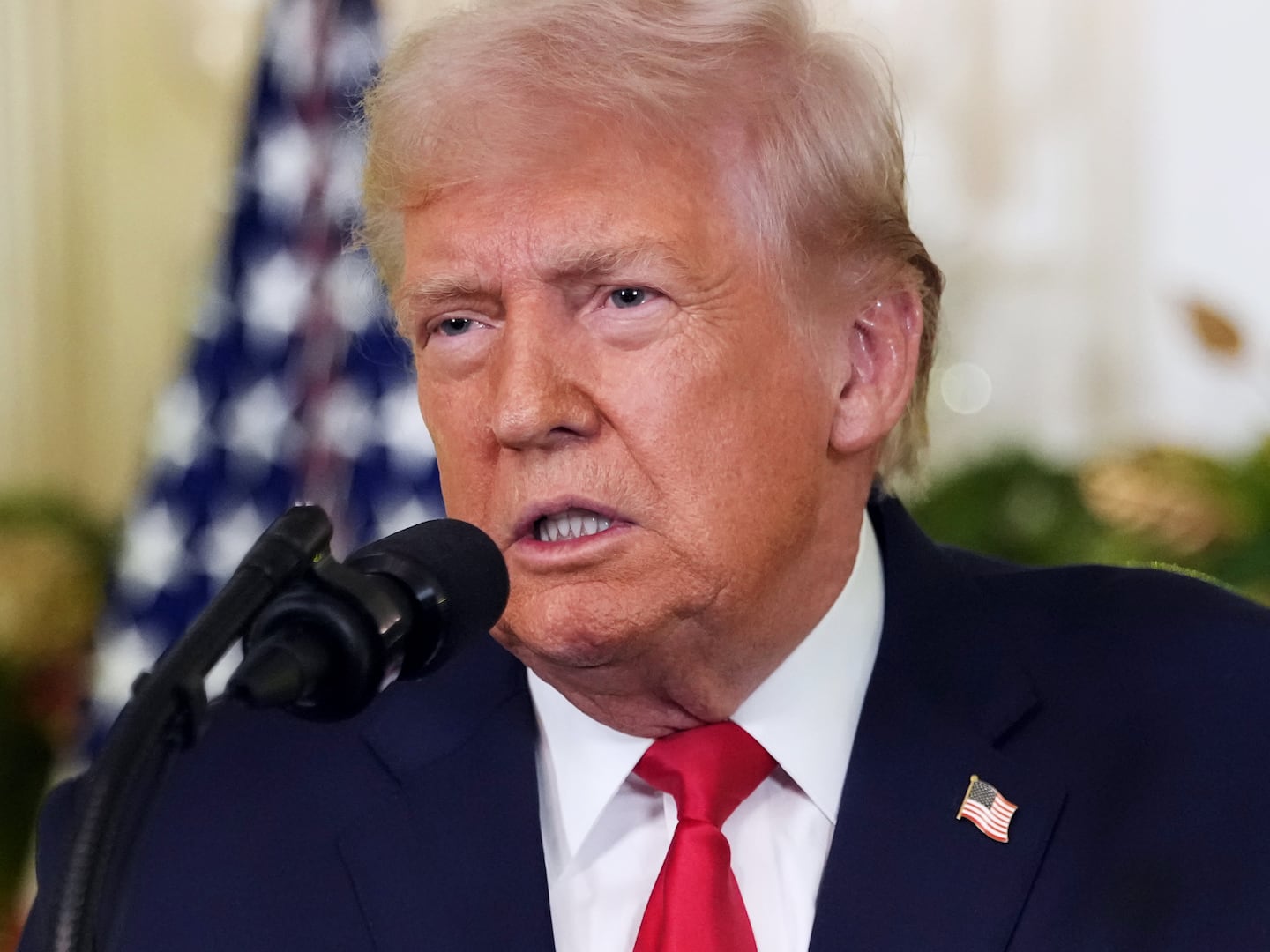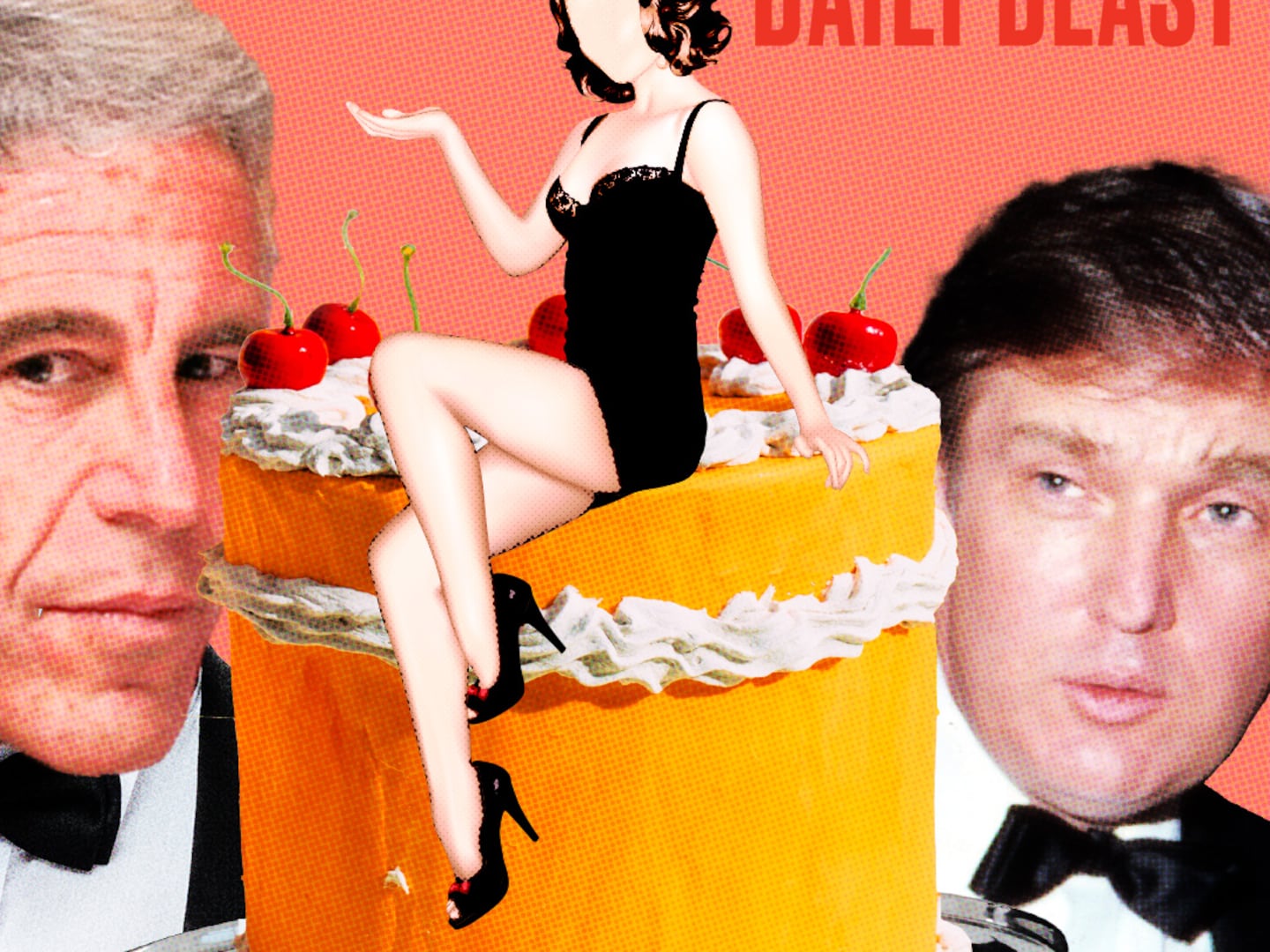At the close of the 1960s, Omar Sharif was one of the most successful international film stars, having played leading roles in three critical and commercial hits, Lawrence of Arabia, Doctor Zhivago and Funny Girl. But, though he remained a byword for cosmopolitan sophistication and the glamour of big-screen success still clung to him, he had already completed his most notable work as an actor. In another sphere, however, he remained pre-eminent, with a reputation as one of the world’s greatest bridge players. He died in a hospital in Cairo, aged 83, on July 10.
The film that launched his career—at least in the English language—was David Lean’s epic Lawrence of Arabia (1962), in which Peter O’Toole took the title role. Sharif played Sherif Ali as a roguish charmer; his screen impact, emerging as a speck in the distance, riding across the desert in a swirling haze of heat brilliantly captured by the cinematographer Freddie Young and his assistant Nicolas Roeg, was immediate. His performance was recognized by an Academy Award nomination, and a Golden Globe win, for Best Supporting Actor.
It was often described as the first leading role for an Arab actor, though there was room for discussion about just how Arabian Sharif was—though he was Egyptian, and converted to Islam, his father was a Greek Catholic who had been born in Lebanon, and his mother had Syrian ancestry. This proved rather an advantage when it came to casting.
Throughout his career, rather like Anthony Quinn and José Ferrer, two of his co-stars in Lawrence of Arabia, he tended to play exotic characters from a range of backgrounds. As Zhivago, he was a Russian; in Genghis Khan (1965), he was the Mongol warlord. In Behold a Pale Horse, he played a Spanish priest, and later a Yugoslav in The Yellow Rolls-Royce (both 1964). In Che! (1969) Sharif played the Argentine revolutionary, in the French-language Monsieur Ibrahim et les fleurs du Coran (2003) he was a Turkish merchant. He even had outings, rather less plausibly, as Crown Prince Rudolf of Austria and as an Indian officer in the catastrophic Korean War picture Inchon (1982), by common consent one of the worst films ever made. And, despite its success, many thought him miscast as a Jewish New Yorker in Funny Girl.
Photos: Omar Sharif’s Best Roles

In any case, Sharif’s casting as Ali was serendipitous; the French star Alain Delon, originally pencilled in for the role, dropped out. Sharif, who had been due to play the smaller part of Lawrence’s guide, was promoted and launched on his international career.
By that stage, however, he had long been a major star in his native country, having appeared in more than a dozen Egyptian films. The first was Shaytan al-Sahra in 1954, and by the beginning of the 1960s he was a well-known figure, often appearing as the romantic lead opposite his wife, the Egyptian actress Faten Hamama.
He was born Michel Demitri Chaloub on April 10, 1932 in Alexandria, Egypt. His father was an importer of exotic timber and the family were well-to-do; King Farouk, before he was deposed in 1952, was an occasional visitor to the family home, where he played cards with Sharif’s mother.
Sharif was educated at Victoria College, Alexandria’s most prestigious school, where near-contemporaries included the scholars Sir Michael Atiyah and Edward Said, the Saudi businessman Adnan Khashoggi, King Hussein of Jordan, and Youssef Chahine, later a film director who gave him one of his earliest roles, in The Blazing Sun (1954). He was an able sportsman and took part in school productions; academically, he excelled at mathematics and languages.
After school, he proceeded to the University in Cairo, where he took a degree in mathematics and physics, before joining his father’s firm. He stuck it out for a few years, but then decided to train at the Royal Academy of Dramatic Art. The Blazing Sun was his first leading role, and his first opposite his wife; Sharif converted to Islam and changed his name to marry her that year. Their union did not survive his success in Western films, and the marriage was dissolved in 1974.
His role in Lawrence of Arabia led to steady work in the following years. The Fall of the Roman Empire (1964), with Sophia Loren, Alec Guinness and James Mason, flopped at the box office but now holds up rather well; Behold a Pale Horse ought to have been rather better than it was, and The Yellow Rolls-Royce was unremarkable fare, though it did reasonably well at the box office.
In 1965, he made three all-star-cast historical epics: Genghis Khan; Marco the Magnificent and Doctor Zhivago. The last was not only, by a considerable distance, Sharif’s best role, but one of the great landmarks of popular cinema—though it received a lukewarm reception from most critics when first released. As the title character, Sharif won a Best Actor Oscar as the doctor whose love affair with Lara (Julie Christie) is played out against the background of the Russian Revolution and the subsequent turmoil.
The Night of the Generals (1967) was a Cold War thriller that reunited him with O’Toole and—remarkably, for a Western spy movie—was shot in Warsaw. The following year’s Funny Girl, a big box office hit, struck an unexpected stumbling block when the Egyptian-Israeli Six Day War broke out during filming. The producers briefly considered recasting the Muslim Sharif, and he faced protests at home in Egypt. Barbra Streisand dismissed the anger in Cairo by declaring: “You should see the letter I got from my Aunt Rose!” Sharif returned to the role in 1975 for the sequel, Funny Lady.
For the most part, Sharif’s films thereafter ranged from the unremarkable to the deplorable; besides Inchon, in which he was lucky enough to have only a cameo, Oh Heavenly Dog (1980) was a particular low. The best of them were probably The Tamarind Seed (1974), a romantic drama directed by Blake Edwards. Sharif also had a cameo in Edwards’s 1976 comedy The Pink Panther Strikes Again.
In 1990, he and O’Toole appeared together again, alongside Christopher Lee, in Alejandro Jodorowsky’s extremely odd The Rainbow Thief, which never received an American release. The most that could be said of other films, such as the fantasy The Thirteenth Warrior (1999), the comedy The Parole Officer (2001) and Hidalgo (2004), about horse racing in the desert, was that they were not altogether terrible. Sharif’s last film was the French-Moroccan drama Rock the Casbah (2013).
Perhaps surprisingly, for those who only know his films, from the late 1960s, Sharif was a well-regarded, semi-professional contract bridge player, competing in the top-ranked competitions; he produced a number of books on the subject and had a syndicated newspaper column devoted to the game. Later, he lent his name to a number of computer programs and apps devoted to bridge, some of which are still available.
He was not always so successful at other card games, or with horses, though he was for many years a devotee of the casino and the racetrack, often saying he was only one film ahead of his gambling debts. He could also have a short temper, and had two brushes with the law, after striking a police officer in a Parisian casino in 2003, and when he was convicted of breaking a parking attendant’s nose in Beverly Hills in 2007. Around that time, he announced that he was giving up gambling and trying to live a quieter life, seeing more of his grandchildren.
Though his base was nominally Cairo, he led a peripatetic life, mostly staying in European hotels, and conducted a string of affairs. Earlier this year, his son announced that Sharif was suffering from dementia, and was now prone to mix up the films he had been in. He was also unaware of the death of his former wife in January this year. He is survived by his son Tarek and by two grandsons, Karim and Omar Sharif Jr., who is also an actor.






